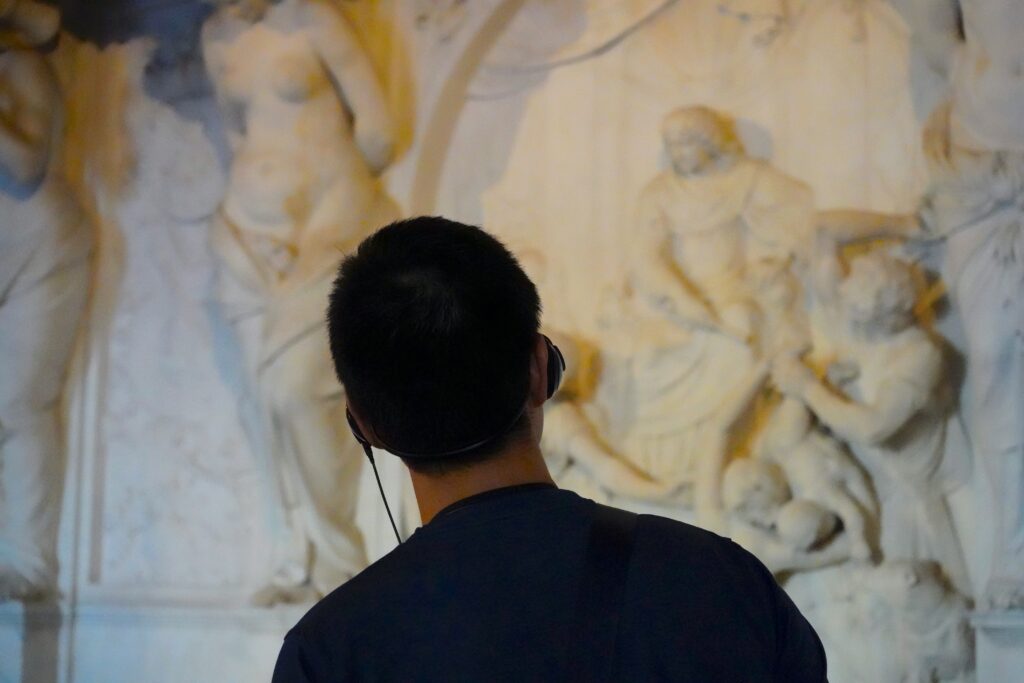Introduction
For many introverts, the thought of explaining their nature to extroverted friends can seem daunting. But it doesn’t have to be. This article is for those who are analytical and optimistic, believing in the potential for personal change. It’s written in clear, simple English, without unnecessary jargon. Here, we’ll explore practical ways to communicate your introverted tendencies to those who are more extroverted. Plus, we’ll touch on the increasingly popular concept of the introvert to extrovert transition. It’s a journey many are embarking on, and it starts with understanding yourself and those around you. 🌱🌟👥💬

The Challenges Introverts Face in an Extroverted World
In a world that often celebrates extroversion, introverts can sometimes feel like square pegs in round holes. The challenges they face are multifaceted and deeply rooted in societal norms that favor outgoing, social personalities. At the core of these challenges is a misunderstanding of what introversion truly means. It’s not about being shy or antisocial; it’s a matter of how energy is gained and spent. Introverts are not less capable of social interaction; they simply find prolonged exposure to large groups or overly stimulating environments draining.
This preference for quieter, more solitary environments can lead to misconceptions. Introverts are often labeled as aloof or uninterested, when in reality, they are simply processing and engaging with the world differently. In professional settings, this can translate to being overlooked for leadership roles or team projects, despite having valuable insights and ideas. In personal scenarios, they might find themselves struggling to keep up with the social demands of their extroverted friends, feeling a pressure to conform to social norms that don’t align with their natural tendencies.
Another significant challenge is the undervaluing of introverted traits. Qualities like deep thinking, the ability to listen, and a preference for meaningful conversation are often overshadowed by the emphasis on being outgoing and constantly social. This can lead to a sense of inadequacy or a belief that one must change their fundamental nature to succeed or be accepted.
Recognizing these challenges is the first step in addressing them. If you’re an introvert feeling out of place in an extroverted world, take our advanced introvert test to better understand your unique strengths and how to leverage them. It’s a tool designed to help you navigate these waters with confidence and clarity, embracing your introverted nature without feeling the need to change who you are. 🌟🤔👤🌐

Communicating Your Introverted Nature to Extroverted Friends
For introverts, articulating their nature to extroverted friends is often a delicate balancing act. The key is to communicate in a way that is respectful and informative, without feeling like you’re apologizing for who you are. It starts with self-acceptance, embracing your introverted qualities as not just normal, but valuable. Once you’ve embraced this, explaining it to others becomes easier.
Begin by choosing the right moment. A quiet, one-on-one conversation is often more effective than a group setting. Explain what introversion means to you: perhaps it’s needing time alone to recharge after social gatherings, or preferring deeper, more meaningful conversations over small talk. Emphasize that this isn’t a reflection of your feelings towards them, but a fundamental aspect of your personality.
Use analogies if it helps. Comparing social energy to a battery that drains and recharges differently in introverts and extroverts can be an effective visual. It’s important to clarify that being introverted doesn’t mean you dislike socializing; rather, it’s about how you prefer to socialize and how it impacts your energy levels.
Address common misconceptions. Make it clear that being introverted doesn’t equate to being shy, antisocial, or uninterested in others’ company. You seek connections just as much as anyone else, but you might express it differently.
Encourage questions from your extroverted friends. This can turn the conversation into a dialogue, rather than a monologue, making it more engaging and informative. It also helps them feel involved and shows that you value their understanding.
Lastly, invite them to join our intro to extro community to discuss and learn more about these differences. This gesture not only helps in building mutual understanding but also shows your commitment to maintaining a healthy, respectful relationship where both introverted and extroverted traits are valued. 🗣️👥🔍💡

Strategies for Explaining Your Need for Alone Time
For introverts, explaining the need for alone time to extroverted friends is often a nuanced task. It requires a blend of honesty, sensitivity, and assertiveness. The goal is not to distance oneself from friends, but to create a mutual understanding of different social needs. It’s crucial to communicate that this need for solitude is not a personal rejection, but a fundamental part of your well-being.
Start by being direct yet gentle in your approach. Explain that alone time is not just a preference, but a necessity for your mental and emotional health. It’s the way you recharge and process your experiences. This time is not about being away from others, but rather about being with yourself, which is essential for maintaining balance in your life.
Highlight the positive aspects. Emphasize that this time alone enhances the quality of the interactions you do have. When you’re recharged, you’re more present, engaged, and genuinely happy to be with them. This perspective helps extroverted friends understand that your alone time indirectly benefits your relationship with them.
It’s also helpful to set clear expectations. Let them know that there will be times when you might decline social invitations or leave events early. Assure them that these decisions are about self-care and not about the people you’re with. Transparency prevents misunderstandings and sets a precedent for respect and boundaries.
Additionally, offer alternatives. Suggest smaller gatherings or activities in quieter settings where you feel more comfortable. This shows that you’re still interested in spending time together, just in environments that are more conducive to your introverted nature.
Lastly, encourage reading our unique intro to extro roadmap for more insights. This guide offers a different perspective on balancing introverted needs with extroverted social dynamics, providing practical tips for both introverts and their friends. 📖✨👤🔄

The Importance of Understanding Each Other’s Social Needs
Understanding and respecting each other’s social needs is pivotal in maintaining healthy, balanced relationships between introverts and extroverts. This mutual understanding goes beyond mere acceptance; it’s about appreciating the differences and realizing that these varying needs complement each other in enriching ways. For introverts, it’s essential to articulate this to extroverted friends, fostering an environment of empathy and support.
Introverts should explain that while they value deep and meaningful interactions, these exchanges don’t necessarily need to be frequent or prolonged. It’s the quality, not the quantity, that matters most to them. For extroverts, frequent and energetic social interactions are rejuvenating and fulfilling. Making extroverted friends aware of this distinction helps in avoiding misinterpretations of each other’s actions and intentions.
It’s also important to discuss how these needs can manifest in everyday situations. For example, an introvert might prefer a quiet night in or a small, intimate gathering, whereas an extrovert might thrive in a lively party or a large social event. These preferences aren’t just whims; they’re deeply ingrained aspects of each personality type.
Encourage extroverted friends to share their perspectives as well. Understanding their social needs can help introverts to step out of their comfort zones occasionally, just as they ask their friends to respect their need for quiet and solitude. This two-way street of understanding and compromise strengthens the bond and leads to a more fulfilling relationship for both parties.
Additionally, it’s vital to normalize the idea that everyone’s social needs can fluctuate. There will be times when an introvert feels more social and times when an extrovert needs solitude. Embracing this fluidity without judgment is key to a harmonious relationship.
In conclusion, understanding and respecting each other’s social needs is not just about accommodating differences; it’s about celebrating them. It’s the recognition that these diverse traits bring a richer, more varied perspective to every interaction. 🤝💬🎭🌈
Setting Boundaries: A Key to Introvert-Extrovert Friendships
Setting boundaries is a crucial aspect of any relationship, but it holds particular significance in friendships between introverts and extroverts. For introverts, clearly communicating boundaries is essential for maintaining a sense of comfort and balance. It’s about creating a space where they can thrive without feeling overwhelmed or misunderstood. At the same time, it’s important for extroverts to understand and respect these boundaries, recognizing them as a key to a healthy and sustainable friendship.
Introverts should approach boundary setting with clarity and kindness. It involves being upfront about their limits – how much socializing they can handle, what kinds of interactions they prefer, and how they need to spend their downtime. It’s not about setting rigid rules, but about giving friends a framework to understand their social comfort zone. For instance, an introvert might explain that after a busy week, they need a quiet weekend to recharge. Or they might prefer smaller, more intimate gatherings over large parties.
Conveying these boundaries can also include discussing how to handle situations where they feel overwhelmed. This might involve having a signal for when they need to step away from a social situation or agreeing on a way to politely decline certain invitations without causing offense. It’s about finding a balance that respects the introvert’s need for solitude while not completely withdrawing from social life.
It’s equally important for extroverts to voice their needs. They might require more frequent interaction or enjoy spontaneous social activities. Recognizing these needs helps introverts to step outside their comfort zone occasionally and participate in activities they wouldn’t typically choose. This reciprocal understanding is what makes the friendship stronger and more adaptable.
Ultimately, setting boundaries is not about creating distance; it’s about building a framework within which both introverts and extroverts can interact comfortably and authentically. It’s a process of give and take, where both parties learn to adapt and respect each other’s needs, leading to a more fulfilling and enduring friendship. 🛑🗣️🤲🌟
Fostering Mutual Respect and Understanding
Fostering mutual respect and understanding is the cornerstone of any strong relationship, especially between introverts and extroverts. It’s about acknowledging and valuing the differences in each other’s personalities, and using these differences to enhance the friendship rather than allowing them to become points of contention. This mutual respect creates a foundation for a deeper, more empathetic understanding between friends of differing social inclinations.
For introverts, part of fostering this understanding is being open about their experiences and feelings. It involves sharing not just the challenges of being introverted in an extroverted world, but also the joys and advantages. They can explain how their introspective nature allows for deep thinking and creativity, or how their preference for smaller social circles leads to more meaningful and lasting friendships. By sharing these insights, introverts help extroverts to see the world through their lens, fostering a greater appreciation for their perspective.
Extroverts, on the other hand, play a crucial role in this dynamic by actively listening and showing a willingness to adapt. This could mean occasionally opting for quieter, more introvert-friendly activities, or simply giving their introverted friends the space they need without taking offense. Extroverts can also share their own experiences and what they enjoy about their social nature, helping introverts to understand and appreciate the joys of extroversion.
This mutual respect and understanding go beyond mere tolerance. It’s about genuinely valuing the different qualities each person brings to the friendship. It’s recognizing that the introvert’s need for solitude and the extrovert’s love for social interaction are both valid and important. By embracing and respecting these differences, friends can create a stronger, more harmonious relationship that is enriching for both parties.
In conclusion, fostering mutual respect and understanding is not just beneficial for maintaining a balanced friendship; it’s essential. It’s a journey of continuous learning and adapting, where both introverts and extroverts have the opportunity to grow and enrich their lives through the unique perspectives they each bring to the table. 🤝💡🌍❤️
Conclusion
In conclusion, navigating the dynamics of introvert-extrovert friendships requires patience, empathy, and a willingness to understand and respect each other’s differences. For introverts, it’s about confidently communicating their nature and needs, while also appreciating the vibrant energy that extroverts bring into their lives. For extroverts, it involves listening, adapting, and valuing the introspective depth that introverts offer.
This journey is not just about finding a middle ground; it’s about creating a rich tapestry of experiences that allows both personalities to flourish. By setting clear boundaries, fostering mutual respect, and embracing each other’s unique qualities, introverts and extroverts can build friendships that are not only enduring but also deeply rewarding.
Through these friendships, we gain a broader perspective of the world, learning that the balance of quiet reflection and lively interaction can lead to a more fulfilling life. The key is open communication, understanding, and a genuine appreciation for the diverse ways people experience and interact with the world around them. In doing so, we not only enhance our friendships but also grow as individuals, becoming more empathetic, adaptable, and understanding.
As we continue to navigate our relationships, let’s remember the value in our differences and the strength they bring to our connections. In a world that often categorizes people as one type or another, the beauty lies in discovering how these varied personality traits complement each other, creating a more colorful and harmonious human experience. 🌐🤝🌈💖




